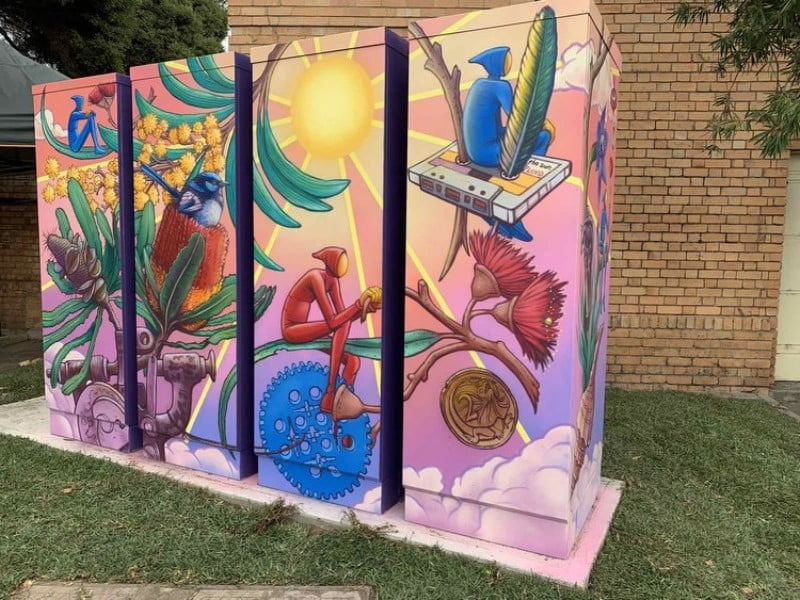Victorian Premier Daniel Andrews has pledged $43 million to support the roll out of 100 new community batteries if the Labor Party is successful at the state election on November 26.
The batteries will partly contribute to meeting the state’s renewable energy storage target of 2.6GW by 2030 and 6.3GW by 2035, which was set at the end of September 2022.
According to the Australian Renewable Energy Agency (ARENA), community-scale batteries generally have power capacities up to 5MW, meaning the election commitment can reasonably be expected to install up to 500MW of battery storage.
Around 25,000 homes are expected to be supported by the new community batteries, which represents a tripling of the number of homes with access to a neighbourhood battery. Of the first 28 batteries, 15 will be in metropolitan Melbourne and the remainder in regional Victoria.
Locations for the other 72 committed batteries will be determined in consultation with community organisations, local governments, and distribution companies.
InnovationAus.com understands that some of the community batteries may overlap with the federal government’s commitment to fund 400 community batteries across the country through the $20 billion Powering Australia program.

Since the end of 2021, Victoria has been home to the largest operational big battery in the Southern Hemisphere, which has a capacity of 300MW. Premier Andrews said Thursday’s community battery commitment would build on the state’s reputation.
“Victoria is the battery capital of Australia with a world-leading storage target. Now we’re building 100 neighbourhood batteries across the state to make sure all families can share the savings from our solar boom,” Mr Andrews said.
Minister for Energy, Environment and Climate Action Lily D’Ambrosio echoed a similar sentiment and noted that the commitment would also help reach the state’s 2045 net-zero emissions target.
In October, Premier Andrews promised to set a 95 per cent renewables target by 2035 if successful at the election. This would be accompanied by a $1 billion investment to build state-controlled renewable energy projects.
The investment would be delivered through a reinvigorated State Electricity Commission of Victoria, which had its businesses split up in 1993 before being further divided and privatised throughout the 1990s.
A Commonwealth, Victorian, and Tasmanian government deal to equally share a 20 per cent equity investment in the 1500MW Marinus Link transmission line between Tasmania and Victoria was also announced in the same week.
The Commonwealth similarly announced $1.5 billion of concessional financing for projects in Victorian Renewable Energy Zones in October.
The state government’s Neighbourhood Battery Initiative is a $10.92 million grant for battery projects ranging from feasibility to implementation. This support is for the delivery of a battery in Fitzroy North, as well as development on batteries on Phillip Island and Tarneit.
The federal government is committed to installing 400 community batteries across the country, through a $200 million investment which would provide storage for up to 100,000 homes. As at March 2022, federal Labor had promised $500,000 to develop community batteries in 10 locations across Victoria.
So far, Premier Andrews has committed to batteries in the following locations: Ballarat, Bass Coast, Baw Baw, Campaspe, Cardinia, Casey, Darebin, East Gippsland, Greater Bendigo, Greater Dandenong, Greater Shepparton, Hume, Knox, Macedon Ranges, Maribyrnong, Merri-Bek, Mildura, Moira, Monash, Moonee Valley, Mornington Peninsula, Port Phillip Bay, Wangaratta, Wellington, Whittlesea, Wodonga, Wyndham, and Yarra Ranges.
Editor’s note: This article has been edited to clarify that some of the community battery funding commitments from Victorian Labor may overlap with the federal government’s Powering Australia program.
Do you know more? Contact James Riley via Email.


Just wanted to clarify – are the battery sizes meant to be in MWh (or kWh) or are they provided as an indicator of their peak power capacity? I assume it is the former.